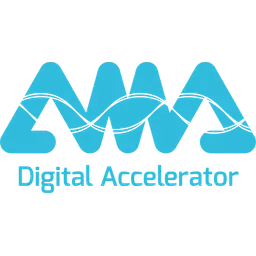- SEO
SEO Agency
Take advantage of the first traffic acquisition lever by entrusting your SEO to a digital agency experienced in SEO. - SEA
SEA Agency
Grow your business quickly with paid search (SEA).
- Social Ads
Social ads
Optimize your social media advertising campaigns to improve your performance.TikTok adsGo viral with your ads on TikTok
- Agency
The agency
Keyweo was born from the desire to create an agency that meets the principles of transparency, trust, experience and performance. - Blog
- Contact
Crawl budget
Home > SEO Agency > SEO Glossary > Crawl budget
Definition: What is the crawl budget?
Crawl budget refers to the number of pages Googlebot will visit on a website per day. Indeed, search engine robots do not visit all the pages of a site in a single visit. It takes several passages for all the pages of a site to have been visited. This crawl budget thus makes it possible to establish the number of pages that will be explored on each visit.

Quick access
Factors taken into account in the calculation of the crawl budget
This crawl budget granted to each website by search engines is calculated according to certain criteria:
- Page loading speed: Google values the user experience, which is why it will favour sites with fast loading times
- The depth of the page: The pages being far from the home page, that is to say, reached in a large number of clicks, have much less chance of being explored than those easily accessible from the homepage.
- The frequency of updates: The more regularly you publish content, the more likely you will be that Google crawls your pages.
- The quality of the content of the site: It is important that this content feeding your site is of quality to encourage Google to return to visit your pages.
- Technical errors: it is essential to limit technical errors on the site as much as possible, such as 404 pages, 301/302 redirects, orphan pages, etc.
Overall, search engines will calculate this crawl budget based on the quality of the pages of a website.
Interest of the crawl budget in SEO
The exploration of the pages of a website by the search engines is the preliminary step to their indexing. The greater the crawl budget granted to your site, the greater your chances of seeing your pages position themselves in the first search results.
Furthermore, the countless pages present on the web are all in competition with each other. Indeed, Google, and the other search engines, have a limited exploration resources due to their large number. Thus, given the heavy competition to position yourself in the first positions of the SERP, obtaining the best possible crawl budget is essential for your ranking.
Crawl budget optimization
There are a few techniques to optimize the crawl budget. These tips are based both on the optimization of the criteria taken into account by search engines in the calculation of this crawl budget and on the judicious use of this budget.
Increase page loading speed
A site whose pages load quickly guarantees a much better user experience than a site whose pages take a long time to load. However, search engines value sites offering a good user experience. In addition, just as a page that takes a long time to load wastes a user’s time, it wastes time for search engine robots. Thus, in order to optimize the crawl budget granted to your site, it is advisable to improve the loading time of your pages.
Optimize internal linking
Having a good internal mesh allows you to link your pages together, and avoid orphan pages. In addition, it also makes it easier to navigate your site, both for users and for Google.
Thus, by optimizing your internal linking, you will improve, on the one hand, the user experience, and on the other hand, make your pages more easily accessible by Google. This can only be beneficial to the significant crawl budget allocated to your website.
Correct defects
If Google, or another search engine, notices many flaws on your website, then it will deem it unattractive, and give it a very low crawl budget. That’s why it’s worth fixing all the internal flaws of your site if you want to get a big crawl budget.
This goes through:
- Get rid of your 404 pages: To do this, you can set up redirects, or display a 410 Gone server code
- Do not multiply redirects: However, be careful not to multiply redirects. Indeed, if their number is too large, you risk exhausting your crawl budget before Google has explored the page you want to index.
- Remove broken links: By keeping broken links in your internal link, you will send Google 404 pages.
Publish quality content regularly
To attract crawlers to your site, there is nothing better than regularly publishing content. Indeed, this tells Google that your site is still alive, and allows you to position yourself on a larger number of keywords.
Be careful, however, that this content is of good quality because there is no point in publishing it regularly if it is of poor quality. To do this, position yourself on relevant keywords, write long articles dealing with subjects from an unusual angle, and clearly respond to the search intent of users.
Saving that crawl budget
Finally, you should not waste your crawl budget on useless pages, as this will have the effect of hindering the SEO performance of your site. Start by identifying the pages that are unnecessarily consuming the crawl budget. To do this, use the Search Console, and look at the pages crawled but not indexed to give you an idea of the crawl budget wasted for useless pages. Then you can use the Screaming Frog software to precisely identify the strategic pages of your site for which to use your crawl budget.
Once these strategic pages have been identified, you must then redirect the Googlebot to them. To do this, start by optimizing your internal linking to link your strategic pages together. You can also block your useless pages using the robots.txt file which tells Google all the URLs not to crawl.
The most popular definitions
backlink
backlink dofollow
backlink nofollow
Sponsored article
Anchor link
citation flow
Link exchange
Link juice
Toxic link
Netlinking
Keyword occurrence
Boost your Visibility
Do not hesitate to contact us for a free personalised quote
Notez ce page







